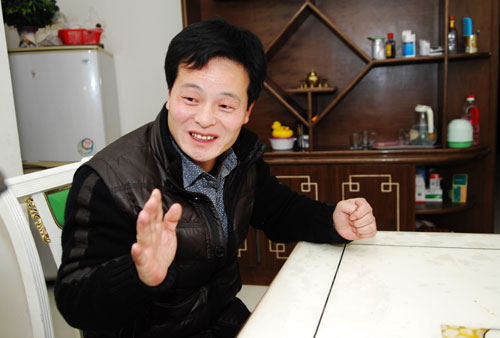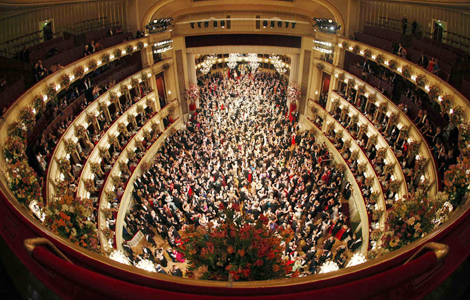Comforts of home earned from employment abroad
Updated: 2012-02-22 10:12
By An Baijie and Xiang Mingchao (China Daily)
|
|||||||||||
|
 |
|
Liu Bing, a villager in Xinxian county, Central China's Henan province, recalls his overseas working experience. After he returned from South Korea, Liu built a three-storey villa in the county and started a company. [Photo/China Daily] |
XINXIAN, Henan - Liu Bing appreciates the days he spent working in South Korea, which gave him the capital to start his own career.
Liu, a 42-year-old villager from Xinxian county, worked in a dye factory in Daegu from 2001 to 2005. During that time he earned more than 600,000 yuan ($95,000), a big sum compared with the average income in the mountainous region he came from.
"It made me feel fulfilled to make so much money," Liu told China Daily.
With the money, Liu built a three-storey villa in his hometown covering more than 300 square meters, and established a company to refurbish houses, which brings him an annual income of 200,000 yuan.
Liu's way of becoming rich is common in his village, where European-style villas are readily found at the foot of the hills.
More than 80 percent of the families in his village have relatives working overseas, he said.
Xinxian county, which borders Anhui and Hubei provinces, has a long history of overseas labor and has been the county with the largest number of workers overseas in Henan province, according to Zhengzhou-based Dahe Daily.
"Xinxian used to be a State-level poverty-stricken county where there were no valuable natural resources or heavy industries. As a result, the local residents had to think of working outside," Li Taifu, chief of the county's labor bureau that is in charge of overseas labor, told China Daily.
Most of the workers will choose the Asia-Pacific region where the political situation is stable and social order is good, including Japan, Singapore and South Korea, according to Li.
Life overseas proved to be difficult for Liu at first, when he had little knowledge about Korean social habits.
"In Korean, if you say hello to people of different status, such as to the elderly, to the young and to friends, the tone will be quite different, which took me more than a year to totally understand," Liu said. "Social etiquette is so important in South Korea that I became quite polite even after I returned to China."
The working experience in South Korea has not only made him wealthy, but has also enriched his mind, Liu said.
"What impressed me most in South Korea is that women older than 60 keep working and don't retire," Liu said. "I was encouraged by such spirit and it made me energetic in my everyday work."
His family's eating habits were also influenced by Korean tradition, and most of his family enjoy eating kimchi, a traditional Korean food, according to Liu.
Restaurants selling Japanese and Korean food are also easily found in stores in Liu's village run by those who have worked overseas.
Liu said he will never work abroad again since he already has a career in his hometown and there is no need for him to experience the hardship of working overseas any more.
"But I am not afraid to work in foreign countries because I know what the real exotic life is like," he said.









